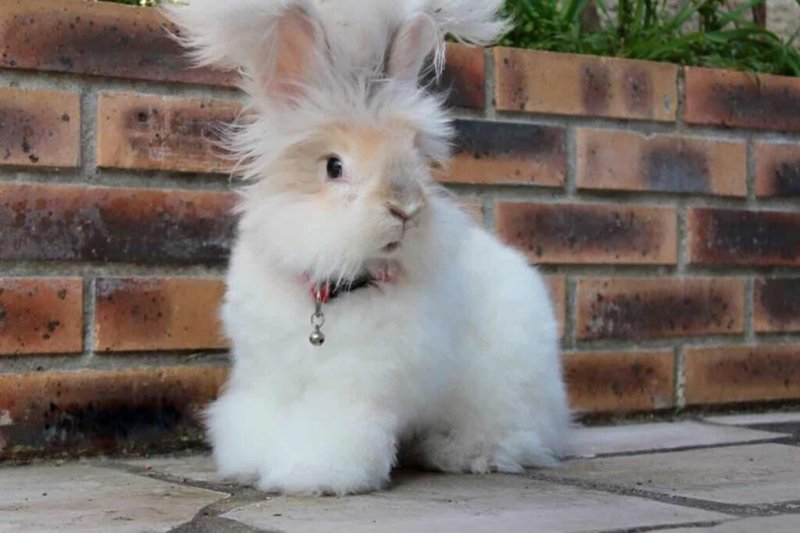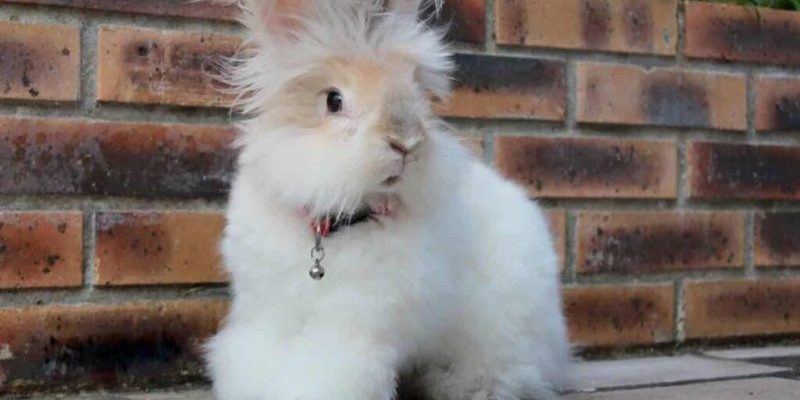
The Perfect Housing Setup for Your English Angora
First things first, let’s talk about where your Angora will live. Providing a comfortable and safe environment is crucial for their happiness. English Angoras are a bit larger than other rabbits, so they need more space. A hutch or cage should be at least 4 feet long, 2 feet wide, and 2 feet tall. You might be wondering why size matters. Well, these bunnies love to hop, stretch, and explore!
Ensure that the housing is well-ventilated and has a solid bottom to prevent injury. You don’t want your fluffy companion to get a paw stuck! Adding soft bedding like hay or aspen shavings will make their home cozy. Just keep in mind that you should avoid cedar shavings, as they can be harmful to rabbits.
Also, place the hutch in a quiet spot away from direct sunlight and drafts. English Angoras can be quite sensitive, so keeping their living area calm and comfortable is important for their well-being. You’ll want to check on them frequently, especially during extreme temperatures, to make sure they’re happy and healthy.
Indoor vs. Outdoor Housing
Another thing to consider is whether to keep your Angora indoors or outdoors. Both options have pros and cons.
For indoor housing, you can spend more time bonding with your pet. It also protects them from predators and harsh weather. Just make sure to provide enough space and stimulation, like toys and tunnels, to keep them entertained.
On the flip side, outdoor housing allows your rabbit to enjoy fresh air and natural sunlight. However, you’ll need to be diligent about securing the enclosure and protecting them from potential threats, like wild animals or extreme weather conditions. Whichever you choose, remember to provide a safe haven for your Angora.
Nourishing Your English Angora: Diet Basics
Feeding your English Angora rabbit a balanced diet is key to keeping them healthy and happy. They’re herbivores, meaning they thrive on a plant-based diet. Hay should be the foundation of their meals. Timothy hay is a popular choice because it’s high in fiber, which is essential for their digestive health.
Along with hay, you’ll want to include fresh vegetables in their diet. Leafy greens like romaine lettuce, kale, and parsley are great options. Just remember to introduce new vegetables slowly to avoid tummy troubles.
Also, high-quality rabbit pellets can supplement their diet, but be careful not to overdo it. A small portion, around ¼ cup per day for an adult rabbit, is sufficient. Too many pellets can lead to obesity and other health issues.
Treats: What’s Safe and What’s Not
You might be tempted to give your Angora treats, and that’s perfectly okay! Just keep in mind that not all foods are safe for rabbits. Treats like small pieces of fruit (think apples, bananas, or berries) can be a delightful addition to their diet, but limit these sugary snacks to just a couple of times a week.
Avoid giving them anything from the onion family, chocolate, or processed foods. These can lead to serious health problems. Always do your research before introducing any new food to your rabbit’s diet.
Grooming Your Fluffy Friend
Now, let’s get to the fun part—grooming! English Angora rabbits have beautiful, long fur that requires regular maintenance. Think of it as a commitment to keep your bunny looking fabulous. Daily brushing is essential to prevent matting and to keep their coat healthy.
Use a wide-toothed comb or a slicker brush designed for rabbits. You might want to take this grooming session as a bonding experience. Your bunny will appreciate your gentle touch, and it’ll help them become more comfortable being handled.
It’s also a good idea to give your Angora a bath occasionally, but you have to be cautious. Rabbits generally don’t like water and can become stressed during a bath. If they get really dirty, it’s best to spot-clean with a damp cloth instead of a full bath.
Nail Trimming and Ear Care
In addition to brushing, don’t forget about your rabbit’s nails! Trimming them every few weeks will prevent them from getting too long and uncomfortable. If you’re unsure how to do this, watch a few tutorials or ask your vet for guidance. It can be a little intimidating at first, but your bunny will thank you for it!
Also, keep an eye on their ears. English Angoras can be prone to ear mites, so make sure to check for any signs of irritation or excessive wax buildup. If something seems off, don’t hesitate to consult your vet.
Socialization and Exercise
English Angora rabbits are social creatures that thrive on interaction. They enjoy companionship, whether it’s with humans or other bunnies. Make sure to spend quality time with your Angora daily. This could be through gentle petting, playtime, or even just sitting together.
Providing plenty of exercise and mental stimulation is crucial for their overall well-being. Setting up a safe play area for your bunny to hop around is a fantastic idea. You can create tunnels, ramps, and toys to keep their active minds engaged. Interactive toys, like puzzle feeders, can also be a hit!
Understanding Behavior
As you bond with your Angora, you’ll start to notice their unique personality traits. Some might be a little shy, while others are more outgoing. Pay attention to their body language; for instance, if they thump their hind legs, it might signal that they’re unhappy or alerting you to something.
Being aware of their moods and behavior will help you cater to their needs better. Plus, it makes the whole experience more rewarding.
Common Health Concerns
Just like any other pet, English Angora rabbits can face health issues. Dental problems can be common, especially if they don’t get enough fiber in their diet. It’s important to monitor their teeth and make sure they wear down naturally through regular chewing.
You should also keep an eye out for signs of gastrointestinal stasis, which can occur if they stop eating or pooping. If you notice anything unusual—like a change in appetite or droppings—don’t hesitate to reach out to your vet.
Regular check-ups are essential to ensure your bunny stays healthy. Vets who specialize in rabbits can provide valuable care tailored to your Angora’s specific needs.
Final Thoughts on Caring for Your English Angora Rabbit
Caring for an English Angora rabbit may require a bit of effort, but the love and joy they bring into your life makes it all worthwhile. From creating a cozy home and feeding them the right diet to grooming and understanding their behavior, each aspect of their care is an opportunity to deepen your bond with your fluffy companion.
Remember, patience and consistency are key. With a little time and understanding, you’ll be well on your way to being the proud owner of a happy, healthy English Angora rabbit. So grab that comb, prepare those veggies, and enjoy every hop along the way!

